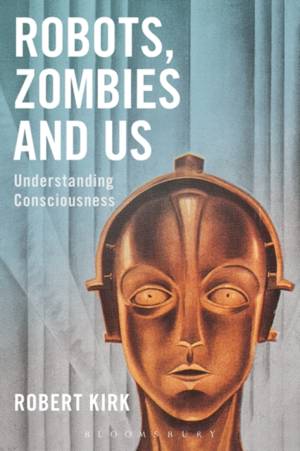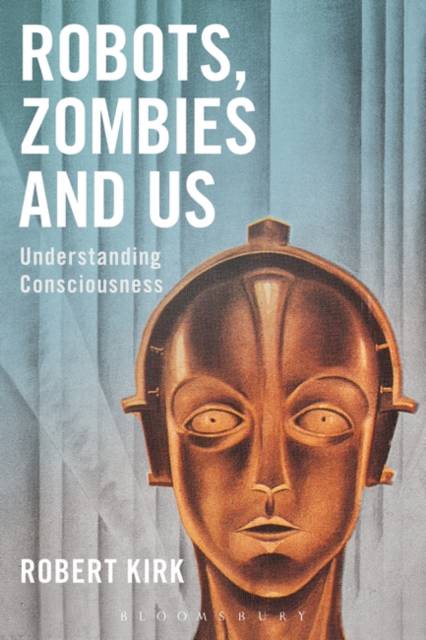
- Afhalen na 1 uur in een winkel met voorraad
- Gratis thuislevering in België vanaf € 30
- Ruim aanbod met 7 miljoen producten
- Afhalen na 1 uur in een winkel met voorraad
- Gratis thuislevering in België vanaf € 30
- Ruim aanbod met 7 miljoen producten
Zoeken
€ 271,45
+ 542 punten
Uitvoering
Omschrijving
Could robots be genuinely intelligent? Could they be conscious? Could there be zombies? Prompted by these questions Robert Kirk introduces the main problems of consciousness and sets out a new approach to solving them.
He starts by discussing behaviourism, Turing's test of intelligence and Searle's famous Chinese Room argument, and goes on to examine dualism - the idea that consciousness requires something beyond the physical - together with its opposite, physicalism. Probing the idea of zombies, he concludes they are logically impossible. Having presented the central problems, he sketches his solution: a version of functionalism, according to which consciousness consists in the performance of functions.
While there is wide agreement among philosophers about what the main problems of consciousness are, there is little agreement on how to go about solving them. With this powerful case for his version of functionalism, Kirk offers an engaging introduction to both the problems and a possible solution.
He starts by discussing behaviourism, Turing's test of intelligence and Searle's famous Chinese Room argument, and goes on to examine dualism - the idea that consciousness requires something beyond the physical - together with its opposite, physicalism. Probing the idea of zombies, he concludes they are logically impossible. Having presented the central problems, he sketches his solution: a version of functionalism, according to which consciousness consists in the performance of functions.
While there is wide agreement among philosophers about what the main problems of consciousness are, there is little agreement on how to go about solving them. With this powerful case for his version of functionalism, Kirk offers an engaging introduction to both the problems and a possible solution.
Specificaties
Betrokkenen
- Auteur(s):
- Uitgeverij:
Inhoud
- Aantal bladzijden:
- 208
- Taal:
- Engels
Eigenschappen
- Productcode (EAN):
- 9781474286589
- Verschijningsdatum:
- 23/02/2017
- Uitvoering:
- Hardcover
- Formaat:
- Genaaid
- Afmetingen:
- 140 mm x 218 mm
- Gewicht:
- 385 g

Alleen bij Standaard Boekhandel
+ 542 punten op je klantenkaart van Standaard Boekhandel
Beoordelingen
We publiceren alleen reviews die voldoen aan de voorwaarden voor reviews. Bekijk onze voorwaarden voor reviews.








